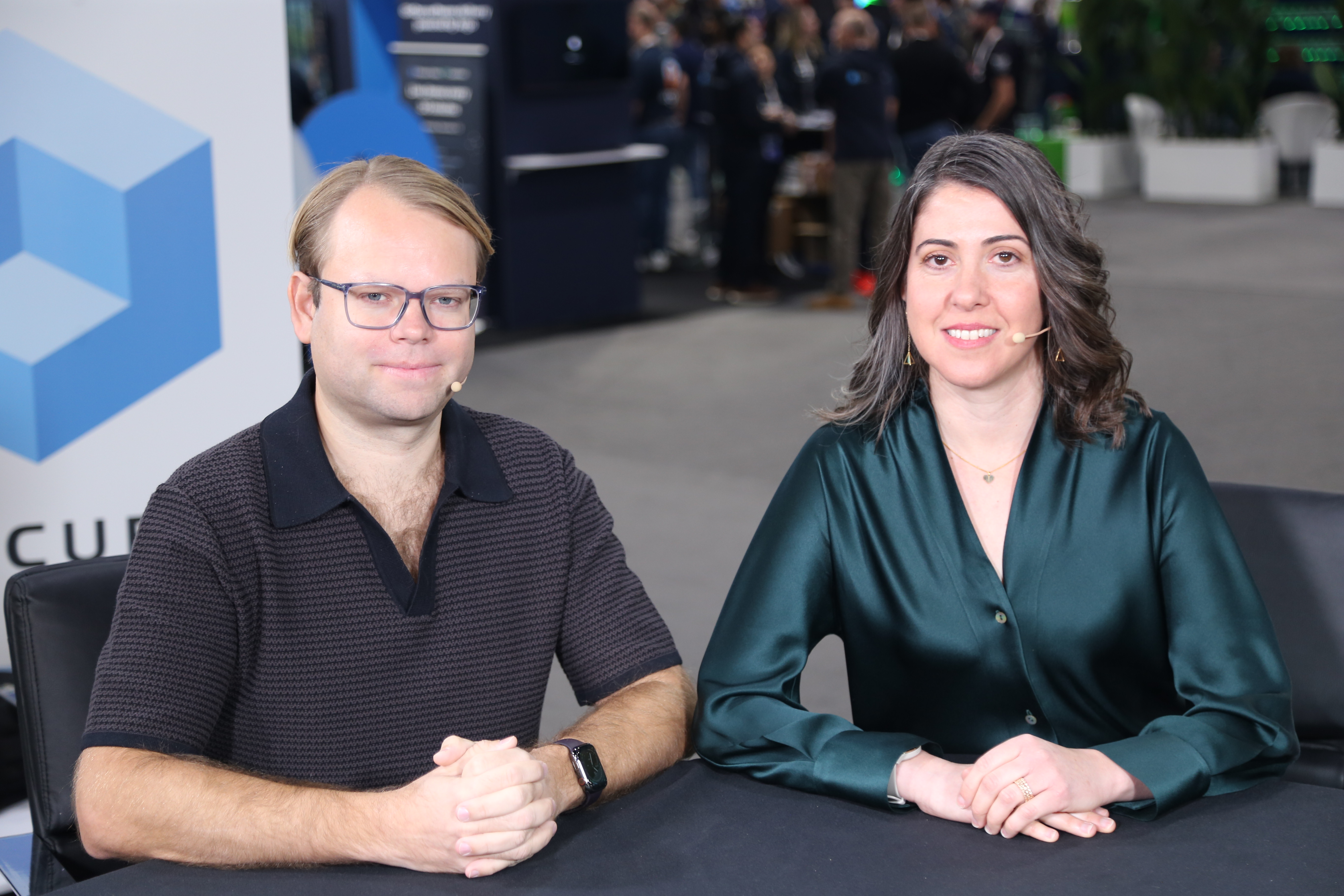 AI
AI
 AI
AI
 AI
AI
Kubernetes machine learning is reshaping the tech landscape, allowing companies to overcome traditional barriers and reach unprecedented levels of artificial intelligence scalability.
This shift toward open-source, cloud-native tools empowers organizations to innovate faster, removing reliance on proprietary systems and creating transparent, adaptable infrastructures. As more businesses adopt Kubernetes, they gain the ability to grow at scale without the constraints of “black box” platforms, driving transformative advancements in AI deployment and operational resilience, according to Peter Salanki (pictured, left), chief technology officer of CoreWeave Inc.

CoreWeave’s Peter Salanki and Chen Goldberg talk to theCUBE about the latest in Kubernetes machine learning.
“As a company, we would not be where we are today without Kubernetes,” Salanki said. “We started out building our cloud later than the traditional legacy hyperscalers. We built our entire stack around Kubernetes.”
Salanki and Chen Goldberg (right), senior vice president of engineering at CoreWeave, spoke with theCUBE Research’s Rob Strechay and Savannah Peterson at KubeCon + CloudNativeCon NA, during an exclusive broadcast on theCUBE, SiliconANGLE Media’s livestreaming studio. They discussed how open-source tools, particularly Kubernetes, enable scalable, efficient AI deployment by reducing vendor lock-in, enhancing infrastructure resilience and simplifying complex operational demands. (* Disclosure below.)
Embracing open source, especially Kubernetes, has proven to be a game changer for companies striving to keep pace with industry giants. Kubernetes offers a standardized, transparent infrastructure that allows teams to leverage familiar interfaces, minimizing the need for proprietary skills and easing deployment processes, according to Salanki.
“We’re on Kubernetes and bare metal, and it helps us both scale,” he said. “When customers come to us, it’s a familiar interface. They don’t have to learn proprietary APIs, and that really lets people hit the ground running and has allowed a scale we simply couldn’t do it without it.”
This streamlined approach to infrastructure is essential for companies managing massive volumes of data across multiple global data centers. Leveraging open-source tools, such as Argo Workflows and cloud-native monitoring systems, they can create a resilient environment that anticipates and addresses potential system failures, ensuring uninterrupted performance even under intense workloads.
“We don’t want to make a trade off where we’re leaving kind of 50% of the performance on a table for resilience,” Salanki explained. “We pushed these systems to the max, which is a good thing. We spent a lot of time using kind of open-source technologies like Argo workflows … it’s still Kubernetes to handle failures, handle lifecycle, which has been really exciting. Then we have the scale part as well, which thankfully Kubernetes has also matured a lot over the last couple of years.”
As adoption of these tools continues to rise, companies are facing new challenges in security and regulatory compliance, particularly in sectors such as healthcare and finance. In response, organizations have developed deployment models that range from single-tenant environments for heightened data control to flexible, multi-tenant configurations for less sensitive data, according to Goldberg.
“A lot of the other regular guarantees and security, like encryption and everything, are existed the same way,” she said. “For some of our customers … the data is really important for them, we actually offer a lot of flexibility in the deployment model. I think this is really early, but I’m pretty confident that we will hear more about it on day two, which is security focus and definitely in the next KubeCons.”
Here’s the complete video interview, part of SiliconANGLE’s and theCUBE Research’s coverage of KubeCon + CloudNativeCon NA:
(* Disclosure: TheCUBE is a paid media partner for the KubeCon + CloudNativeCon NA. Neither Red Hat, the headline sponsor of theCUBE’s event coverage, nor other sponsors have editorial control over content on theCUBE or SiliconANGLE.)
Support our mission to keep content open and free by engaging with theCUBE community. Join theCUBE’s Alumni Trust Network, where technology leaders connect, share intelligence and create opportunities.
Founded by tech visionaries John Furrier and Dave Vellante, SiliconANGLE Media has built a dynamic ecosystem of industry-leading digital media brands that reach 15+ million elite tech professionals. Our new proprietary theCUBE AI Video Cloud is breaking ground in audience interaction, leveraging theCUBEai.com neural network to help technology companies make data-driven decisions and stay at the forefront of industry conversations.